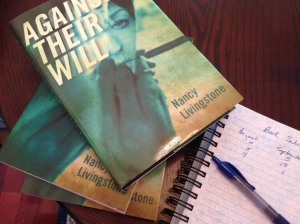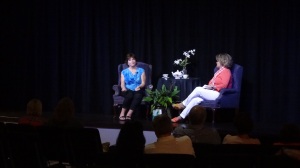As I rush to conform to the demands on my shoulders, two traits, perfect and quick, are holding me back! I feel the need to be perfect in my words and ideas so maybe, just maybe readers will get hooked and keep reading, or even better recommend the book to a friend who buys a copy and so on. You work every spare moment of every day (and night in my case), and just when you think you’ve got it right, something else causes you to stumble and question everything you’ve ever considered in trying to write, promote, and sell your work. Most any writer can relate to this unless he or she has superpowers and can bypass this obstacle!
Pushing forward to produce work worthy of selling, I keep desiring quick; quick results, quick rewards, and quick everything related to my goal of creating work worthy of being read. Yet, unexpected bumps come along, as they do for any writer working to get their work seen and appreciated. There seems to be some detail or issue about your book you never thought in a million years would be a problem. Deadlines get changed without warning, and new demands, insisting you “market yourself and your work” get added to the mix of stomach-churning, acid-burning stress that clinches your insides with anxiety and keeps you awake at night.
The person who can develop, find, or produce a cure for this will be worth millions to those who benefit from their cure! But, one cannot let his or her guard down once your work starts to get noticed. That’s just the beginning of deadlines, pressure, and stress. And, when it looks promising that it will be picked up by a publisher, don’t think you’re home-free just yet!
“Oh, we need a revised and edited manuscript by next week. You can do that, can’t you?” I groan just thinking of this. Then there is the other applecart upset of the week, “We can’t publish your book, this year. The budget isn’t big enough”, or “We need to see more interest in your book”. The clincher for me is, “We need someone who can invest more time and money in their project.”
Okay, this is just a glimpse of what it is like to try to make it in the world of publishing. Not all aspiring authors face this. Some are truly blessed to be noticed and acquired without jumping through a world of hoops and other obstacles. So, how do those of us not so blessed; those who feel as if they’re constantly vibrating from stress constantly streaming through their veins survive?
Survive, that is the word. And, it is one I’m still working to achieve. Somedays, I’m on a cloud, so elated that something promising happened that pushed me one step nearer my goal, that I can’t stop grinning. Then a day or so later, I’m as low in the dumps as one can be because that promise of publishing, or getting an agent, or a contract for a movie script all fell apart with little more than one big sneeze.
Ah, so is life. If one is not stressed through one aspect of their work, there is certainly another job that can produce even more stress. And when that wave washes over me I’m just as destroyed as I would be if it had been a giant tsunami.
Stress is not limited to aspiring authors. It happens to all of us at one time or another. It’s a fact of life. How we survive it, is by our perspective on the big picture. Sometimes we have to give ourselves permission to fail, learn from it, and move forward with revisions made to our game plan. If we want something bad enough we won’t give up. If we do throw the towel in, then we believe we aren’t worthy of the reward of what we were chasing.
For me, all this is true. But, I do have one person who’s on my side, who truly cares for me and wants only the best for me in all things. And, in my love for Him, I am grateful that He sees a much bigger picture than I do. The fight is all in His ability to get me to see, hear, and listen to what He wants. For, He alone knows what works best, both in the plot and in life.
Who is He? Jesus Christ, my Lord and my Savior. In the end, it will all work out according to plan and it will be good.






